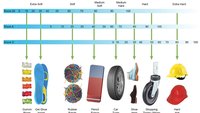Wow, at the very least both myself and Jeff Volek were hoodwinked.
Jeff Volek, PhD, RD, professor and nutrition researcher at the University of Connecticut adds that, "It will be interesting to see how quickly other countries follow suit, recognizing that managing carbohydrates is the key to handling certain health conditions. Lower-fat varieties of foods are often higher in sugars and carbohydrates, which is simply counter-intuitive for people who need to control metabolism-related conditions like diabetes, metabolic syndrome and insulin sensitivity, all of which are related to obesity."
Nothing earth-shattering in the 2 comments (bold) above.
As far as I know it is generally agreed that managing carbohydrates is the key (like Bloomberg's proposed supersize soda tax) … the point of the Swedish experts is that that once you have reached the point where you are obese, there is little to be gained going low-fat … it is more effective to tackle your carbohydrate intake directly, at least for the first 6 months. And over the long term, a low carb diet seems to have no advantage over a low-fat diet.
The point is nobody is prescribing these diets to healthy people.
well to be fair here if one were to give serious thought to the part i highlighted there the conclusion is not definitively saying that low carb-high pro diets are bad.
True, and this is just one study of one demographic - middle-aged Swedish women (grrrrr!).







